|
|
|
Editor's note
|
|
A vegan diet can take some getting used to. It’s not just about cutting out meat and animal products; some vegans find it difficult to meet their nutrient targets for specific vitamins and minerals.
As Professor Clare Collins from the University of Newcastle explains, the four key nutrients to keep an eye on are B12, calcium, iodine and iron. With careful planning, you can get all the nutrients you need – even if you’re pregnant or breastfeeding.
It’s because of the support of readers like you that we’re able to publish evidence-based articles on nutritional science that go beyond the hype.
Our rigorous journalism ensures more quality information influences day-to-day decision making, not alarmist headlines and clickbait. As Professor Collins says, “The Conversation is the most impactful media I do. It’s a game-changer for getting evidence into public debate.”
If you value evidence-based health coverage, and enjoy reading Thrive, please make a tax-deductible donation to The Conversation today.
|
Fron Jackson-Webb
Deputy Editor/Senior Health + Medicine Editor
|

|
|
Your weekly dose of evidence
|
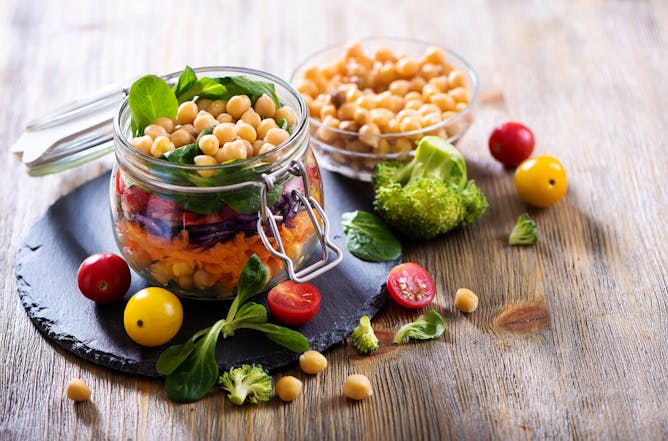
Legumes are a good source of calcium.
Saschanti17/Shutterstock
Clare Collins, University of Newcastle
Are you getting enough vitamin B12, calcium, iodine and iron? Here's what can happen if you don't get enough – and how to ensure you do.
|
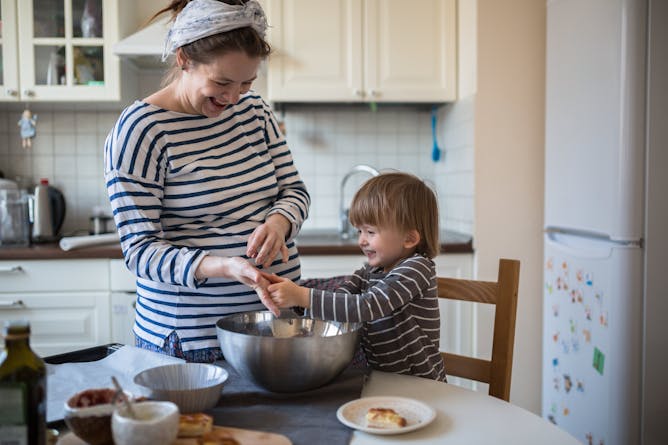
Take care to ensure fibre intakes aren’t excessive during pregnancy and infancy.
Natalia Lebedinskaia/Shutterstock
Clare Collins, University of Newcastle
Usually we set out to get plenty of fibre and little fat, but nutritional advice for pregnant women and parents of toddlers who are vegan is different.
|
From the archives: veganism
|

Joshua T. Beck, University of Oregon
A behavioral scientist explains why people become vegans, why some meat-eaters find them so irksome and how scientists may be nudging us all toward a more plant-centric existence.
| |
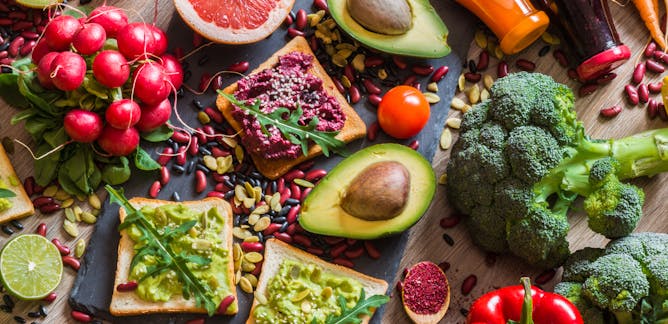
Sophie Medlin, King's College London
More and more people are trying veganism, but how does the human body respond to losing animal products from its diet?
|
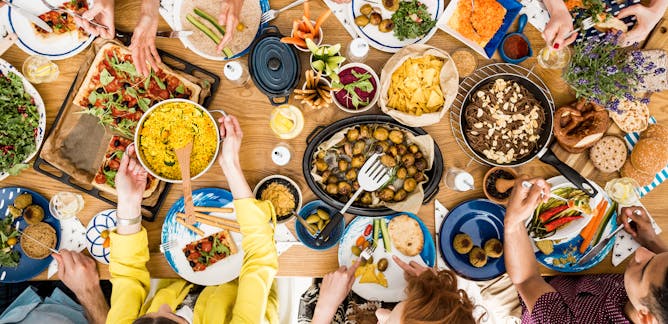
Filippo Bianchi, University of Oxford
Eating meat damages the environment and has been linked with higher risk of disease, but you don't have to go vegan to make a difference to your health and the planet.
| |

Wanda McCormick, Anglia Ruskin University
As omnivores, dogs should be able to adapt well and manage on well prepared commercially available vegetarian diets as long as the essential nutrients they would normally get from meat are present.
|
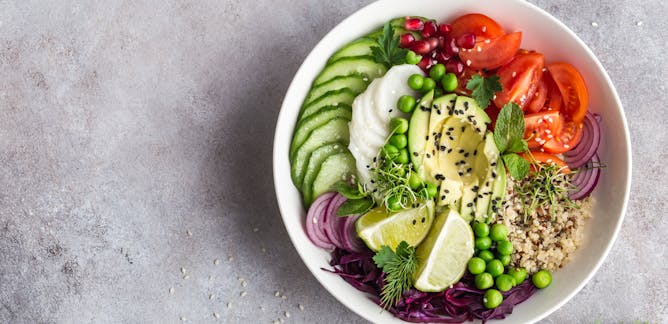
Sophie Medlin, King's College London
Don't lose the benefits of a more plant-based diet as you head into February.
| |
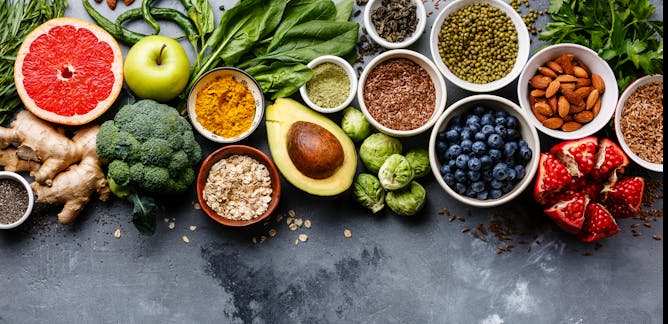
Yasmine Probst, University of Wollongong; Joel Craddock, University of Wollongong
There are many things we can do to support our immune systems. It turns out going vegetarian might be one of them.
|
|
|
Expert answers to serious, weird and wacky questions
|
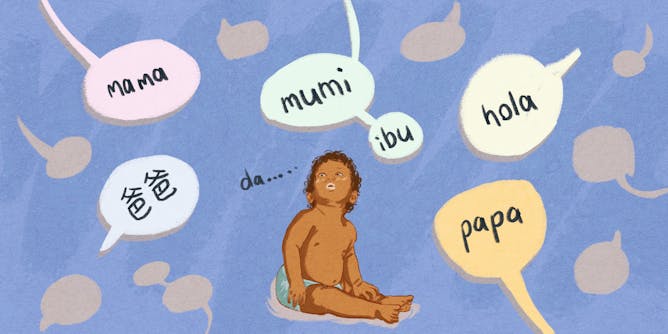
The experience that babies get from eavesdropping on their mother’s conversations in utero helps their brain tune into the language that they will learn to speak once they are born.
Emily Nunnell/The Conversation CC-BY-ND
Christa Lam-Cassettari, Western Sydney University
Using a sing song voice helps babies tell the difference between words like 'mummy' or 'daddy'.
|

Here’s a close-up picture of a head louse. The eggs of the female head louse are what we call ‘nits’.
Cameron Webb, University of Sydney
We like to think that all creatures play a role in the local ecosystem. We're especially interested in insects that provide a benefit for people too. But that's not always how it is.
|
Top picks from the week
|
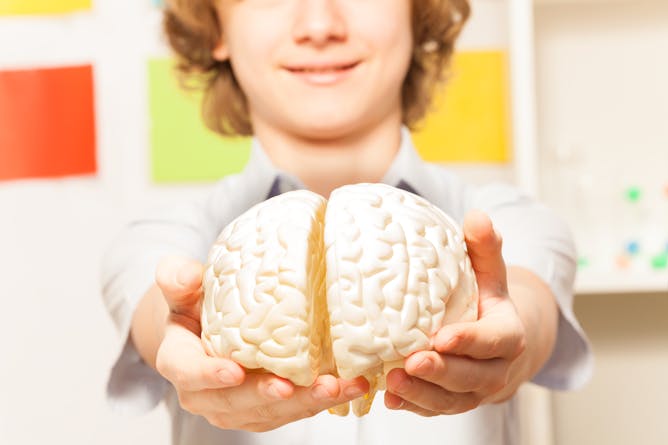
David Gillespie’s new book is full of exaggerated claims that are often not backed up by science.
from shutterstock.com
Sarah Loughran, University of Wollongong
In his new book, Teen Brain, David Gillespie suggests anxiety and other problems are on the rise among teenagers due to smartphones and tablets. This could be true, but his claims are overblown.
|
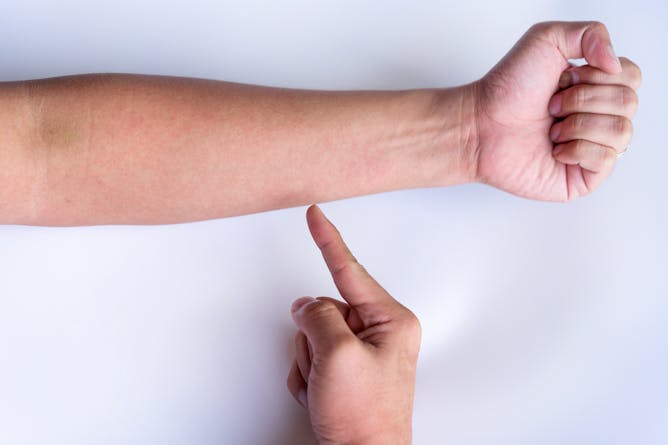
A rash people assume is a reaction to penicillin may not be related to the drug at all.
From shutterstock.com
Greg Kyle, Queensland University of Technology
About 10% of people believe they're allergic to penicillin. Only about 2% actually are.
|
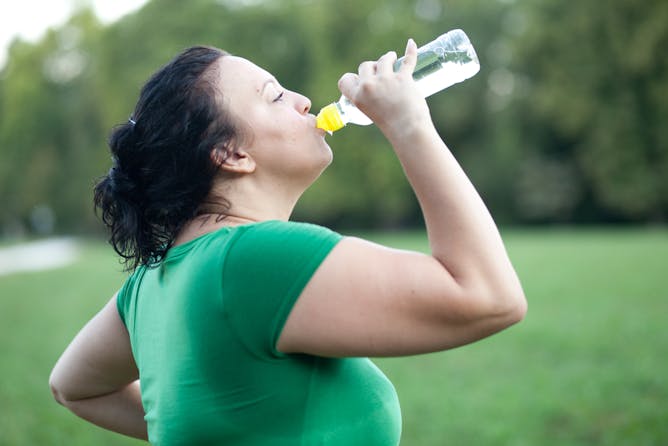
It’s OK to feel out of breath when you start a new exercise program. Here’s why it gets easier with time.
from www.shutterstock.com
Andrew Lavender, Curtin University
If you're unfit or overweight, there's lots you can do to make a new exercise regime both enjoyable and successful.
|
|
|
| |
Featured jobs
|

|
University of Melbourne — Parkville, Victoria
|

|
La Trobe University — Melbourne, Victoria
|

|
The University of Notre Dame, Australia — Ultimo, New South Wales
|

|
Griffith University — Nathan, Queensland
|
|
|
|
| |
| |
| |
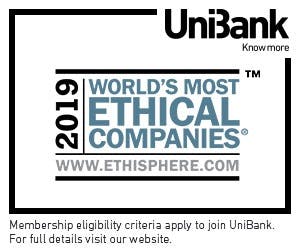
|
| |
| |
| |
Featured events
|

|
Room M10 |Chemical Sciences Building | UNSW Sydney, Sydney, New South Wales, 2052, Australia — UNSW
|

|
200 Creek Street,, Brisbane City, Queensland, Australia — Australia New Zealand School of Government
|

|
Monash University Law Chambers, 555 Lonsdale Street, Melbourne, Victoria, 3000, Australia — Monash University
|

|
900 Dandenong Road, Caulfield East, Victoria, 3145, Australia — Monash University
|
|
|
|
| |
| |
| |
| |
| |
|
|
|
|
|
|
|